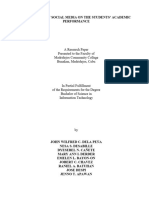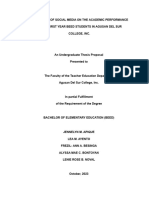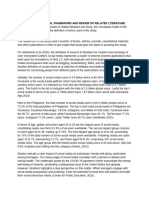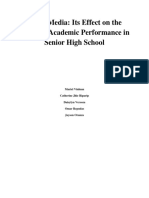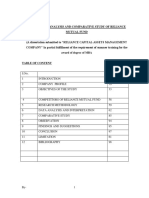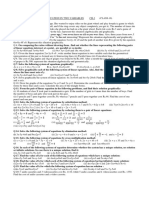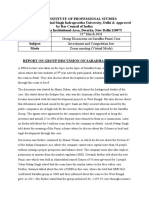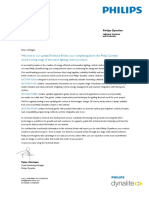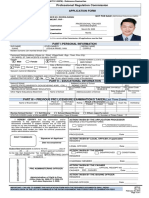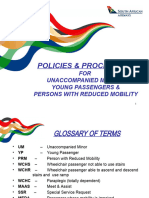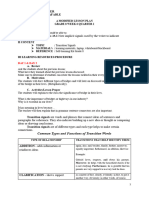0% found this document useful (0 votes)
8 views7 pagesChapter I Group 5
The document discusses the impact of social media on students' academic performance, highlighting both its potential benefits and distractions. It identifies a gap in existing research regarding the specific effects of social media on student attention and learning outcomes, and proposes to investigate this relationship through various research questions. The study aims to provide insights for improving focus and learning in educational settings, particularly among Senior High School students at Del Monte National High School.
Uploaded by
Criszlle KateCopyright
© © All Rights Reserved
We take content rights seriously. If you suspect this is your content, claim it here.
Available Formats
Download as DOCX, PDF, TXT or read online on Scribd
0% found this document useful (0 votes)
8 views7 pagesChapter I Group 5
The document discusses the impact of social media on students' academic performance, highlighting both its potential benefits and distractions. It identifies a gap in existing research regarding the specific effects of social media on student attention and learning outcomes, and proposes to investigate this relationship through various research questions. The study aims to provide insights for improving focus and learning in educational settings, particularly among Senior High School students at Del Monte National High School.
Uploaded by
Criszlle KateCopyright
© © All Rights Reserved
We take content rights seriously. If you suspect this is your content, claim it here.
Available Formats
Download as DOCX, PDF, TXT or read online on Scribd
/ 7




















